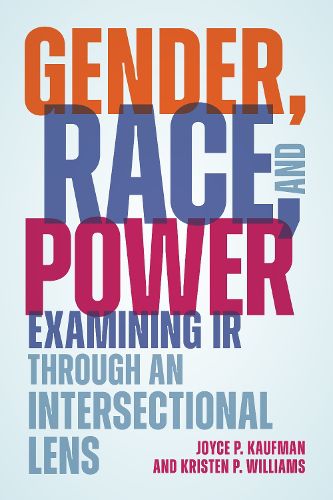Readings Newsletter
Become a Readings Member to make your shopping experience even easier.
Sign in or sign up for free!
You’re not far away from qualifying for FREE standard shipping within Australia
You’ve qualified for FREE standard shipping within Australia
The cart is loading…






Kaufman and Williams present critical issues in international relations through an intersectional approach that examines race, gender, class, ethnicity, and power to arrive at better explanations for such core IR issues as war and peace, security, human rights, development and international political economy, and the global environment. Their approach builds on early calls amongst feminist IR theorists, imploring "Where are the women?" It is only fairly recently that students of IR have broadened the approach to the field to incorporate the dimensions of race, ethnicity, and class as well as gender. Kaufman and Williams help guide readers exploring questions like: How does gender matter for understanding war and peace? How does race matter? Where are the men? What is intersectionality in IR? How does an intersectional approach change or broaden our understanding of international relations?
$9.00 standard shipping within Australia
FREE standard shipping within Australia for orders over $100.00
Express & International shipping calculated at checkout
Kaufman and Williams present critical issues in international relations through an intersectional approach that examines race, gender, class, ethnicity, and power to arrive at better explanations for such core IR issues as war and peace, security, human rights, development and international political economy, and the global environment. Their approach builds on early calls amongst feminist IR theorists, imploring "Where are the women?" It is only fairly recently that students of IR have broadened the approach to the field to incorporate the dimensions of race, ethnicity, and class as well as gender. Kaufman and Williams help guide readers exploring questions like: How does gender matter for understanding war and peace? How does race matter? Where are the men? What is intersectionality in IR? How does an intersectional approach change or broaden our understanding of international relations?